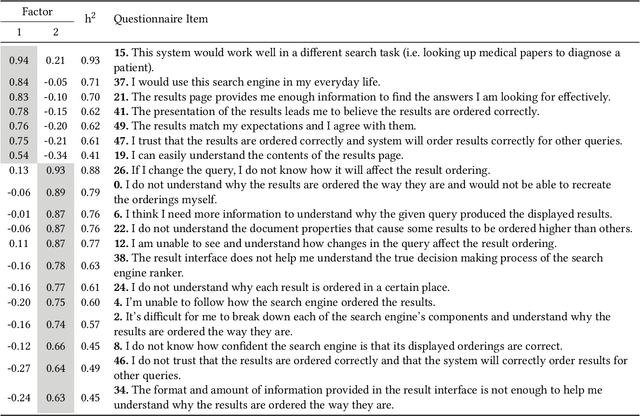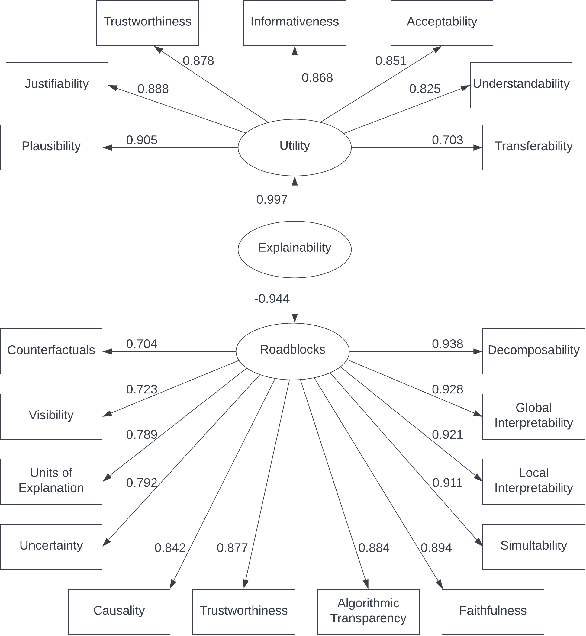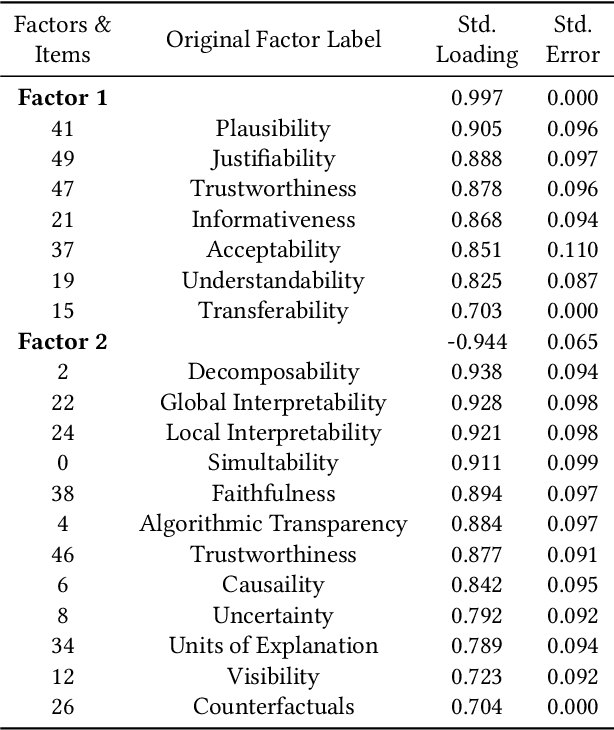Evaluating Search Explainability with Psychometrics and Crowdsourcing
Paper and Code
Oct 17, 2022



Information retrieval (IR) systems have become an integral part of our everyday lives. As search engines, recommender systems, and conversational agents are employed across various domains from recreational search to clinical decision support, there is an increasing need for transparent and explainable systems to guarantee accountable, fair, and unbiased results. Despite many recent advances towards explainable AI and IR techniques, there is no consensus on what it means for a system to be explainable. Although a growing body of literature suggests that explainability is comprised of multiple subfactors, virtually all existing approaches treat it as a singular notion. In this paper, we examine explainability in Web search systems, leveraging psychometrics and crowdsourcing to identify human-centered factors of explainability. Based on these factors, we establish a continuous-scale evaluation instrument for explainable search systems that allows researchers and practitioners to trade-off performance in a more flexible manner than what was previously possible.
 Add to Chrome
Add to Chrome Add to Firefox
Add to Firefox Add to Edge
Add to Edge